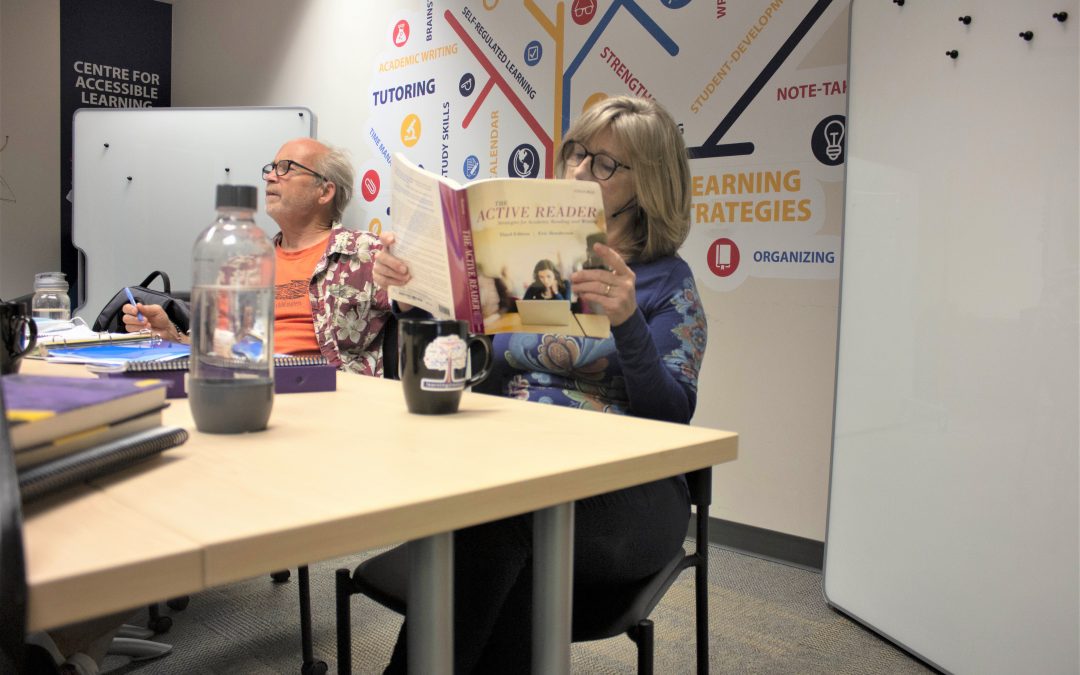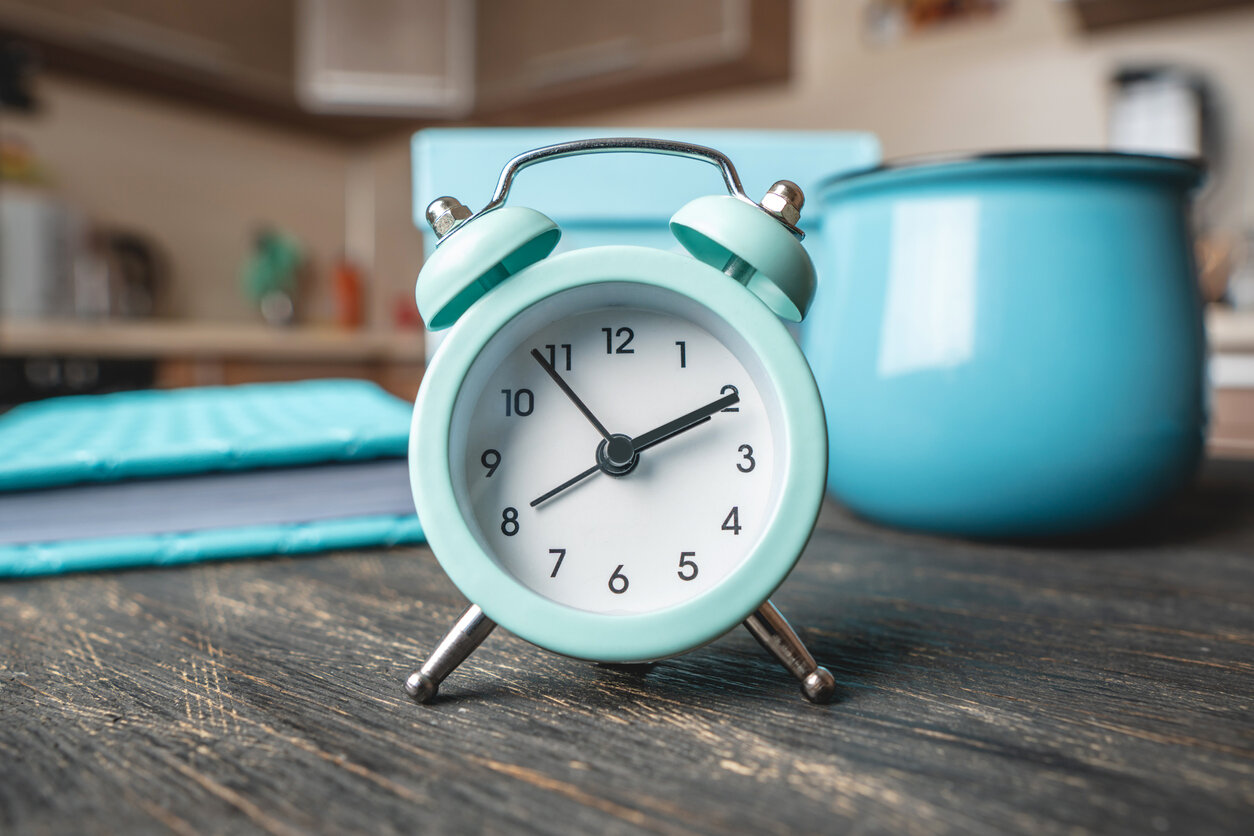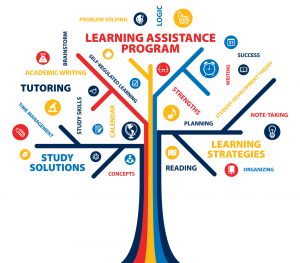Some tips and tricks from LAP tutors and learning strategists on the best way to prepare for exams now that students are back on campus!
The Classroom Crunch
As the first semester of UVic’s post-Covid re-opening comes to a close, students in both first and second-year are preparing to take their final examinations on-campus for the first time. The UVic Learning Assistance Program provides students with tutoring and learning strategist resources, including tools to help prepare for exams. This year, the LAP also reached out to tutors and strategists to gather their top-tips to help you fly through finals with confidence.
Figure Out What You Know
Jacob is one of the LAP’s Math tutors—he did his undergraduate degree at UVic and has gone through dozens of exams, tests, and quizzes during his time as a student. “It’s really nice to have some sort of plan for how you’re going to cover the content that will be on that exam,” he says. “That includes things like going through the content of a midterm to see what you’re really confident in, what needs a little bit of work, and what you don’t know at all. Then you can slowly work to move those things toward the more confident side closer to the exam.”
Another LAP tutor, Stewart, echoes this thought. “Reflecting on your past exams, what worked, what didn’t work, how you can make changes for the exam period—that would be a great tip,” Stewart suggests. He tutors students in chemistry and adds that he and his students will often look over previous quizzes and tests to see which sections proved most difficult. “Then you can work on preparing for that one section, and in the final exam that should give you a bit of a boost.”
Using resources like the Knowledge Rating Tool, or the Exam Preparation Checklist on the Learning Assistance Program’s website is a great way to determine what areas you need to focus on, and what you already know. Resources like this and more can be found here.
Space-Out Studying
“Research suggests that spacing out your practice, ie, eight hours spread out over two weeks, is better and more effective than 8 hours all at once,” says Tiff, one of the LAP’s writing tutors and learning strategists. She encourages students to set reasonable study goals in order to and create accountability and a tangible sense of achievement.
This could mean dedicating an hour every-other day to review previous material so you can avoid late-night study sessions which exhaust your brain-power. “Sleep has a big impact on concentration and memory,” Tiff emphasizes. “Rest enhances creativity, focus and clarity. It’s part of the recipe, not what you give yourself after the exam and you collapse out of exhaustion.”
Grace also works as a writing tutor and strategist with the LAP. She stresses how important it is for students to protect their study time during the exam period, and why this can be a challenge. “Roommates are already having fun, family is coming to town, your significant other wants to do something…You don’t want to say no, but then it causes stress when they don’t get schoolwork done.” She suggests students not schedule any major plans until after the exam period. “Having that very honest, hardline communication lets people know you are keeping your routine consistent during this period of change.”
Practice Makes Perfect
Even when you know the material inside-out, it’s not uncommon to experience exam-anxiety which can cause your mind to go blank during the actual final. Because of this, Michelle—another one of the LAP’s learning strategists—suggests something called active retrieval: the practice of not only getting the information into your brain, but pulling it out when you need it. “Try to make your study conditions similar to what the exam conditions are going to be,” she says. “If you know your exam will be mainly essays, craft your outlines. That way, you’ll have more experience with the format and less anxiety.”
Tiff recommends this method too. “Take as many practice tests as you can get your hands on, anything that helps to simulate the real exam experience. If you don’t have ready-made tests, you can redo old assignments and quizzes or you can try and recreate your own practice problems.” Trying this method with another peer, in a timed environment can be a great way to test out your ability to retrieve information and alleviate stress around test-taking.
Prioritize Wellness
One thing all the tutors and strategists agreed on was the importance of staying mentally and physically healthy during times of high stress. “Make sure you’ve slept and eaten properly,” Jacob says, referring to the day of the exam. He also suggests students arrive early so you don’t feel panicked or in a rush on your way. “I’ve even heard some people say they like to schedule enough time to do a full lap around ring road before they spend three hours sitting in a chair.”
Tiff emphasizes the importance of breaks while studying. “Get up, go outside, have a snack, play with your dog,” she suggests, along with using methods like the pomodoro technique, where you might try setting a timer to study for a short period, take a break, then study some more. On a broader plane, Tiff also encourages students to develop a support system.
“Loneliness and isolation are risk factors to mental health issues. It’s important to surround yourself with people who hype you up and can point you toward your ‘why.’ Whether that’s staying connected to family, the folks you live with in residence, developing a study group where you can build solidarity with your peers.”
Exams are a stressful time for everyone, but by finding the study methods that work for you and taking time to prepare, you can go into your exams with confidence. Make sure to check out the various resources on the LAP website and around campus.





I wanted to thank you for this great read!! I definitely enjoying every little bit of it I have you bookmarked to check out new stuff you post…